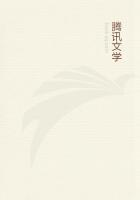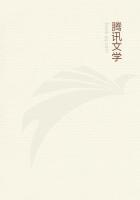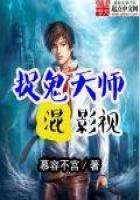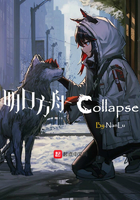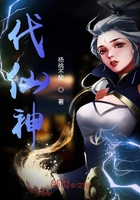Having now finished the work assigned me, I retire from the great theatre of action, and, bidding an affectionate farewell to this august body, under whose orders I have so long acted, I here offer my commission and take my leave of all the employments of public life."The great master of English fiction, writing of this scene at Annapolis, says: 'Which was the most splendid spectacle ever witnessed--the opening feast of Prince George in London, or the resignation of Washington? Which is the noble character for after ages to admire--yon fribble dancing in lace and spangles, or yonder hero who sheathes his sword after a life of spotless honor, a purity unreproached, a courage indomitable and a consummate victory?"Washington did not refuse the dictatorship, or, rather, the opportunity to take control of the country, because he feared heavy responsibility, but solely because, as a high-minded and patriotic man, he did not believe in meeting the situation in that way. He was, moreover, entirely devoid of personal ambition, and had no vulgar longing for personal power. After resigning his commission he returned quietly to Mount Vernon, but he did not hold himself aloof from public affairs. On the contrary, he watched their course with the utmost anxiety. He saw the feeble Confederation breaking to pieces, and he soon realized that that form of government was an utter failure. In a time when no American statesman except Hamilton had yet freed himself from the local feelings of the colonial days, Washington was thoroughly national in all his views. Out of the thirteen jarring colonies he meant that a nation should come, and he saw--what no one else saw--the destiny of the country to the westward. He wished a nation founded which should cross the Alleghanies, and, holding the mouths of the Mississippi, take possession of all that vast and then unknown region. For these reasons he stood at the head of the national movement, and to him all men turned who desired a better union and sought to bring order out of chaos. With him Hamilton and Madison consulted in the preliminary stages which were to lead to the formation of a new system. It was his vast personal influence which made that movement a success, and when the convention to form a constitution met at Philadelphia, he presided over its deliberations, and it was his commanding will which, more than anything else, brought a constitution through difficulties and conflicting interests which more than once made any result seem well-nigh hopeless. When the Constitution formed at Philadelphia had been ratified by the States, all men turned to Washington to stand at the head of the new government. As he had borne the burden of the Revolution, so he now took up the task of bringing the government of the Constitution into existence. For eight years he served as president. He came into office with a paper constitution, the heir of a bankrupt, broken-down confederation. He left the United States, when he went out of office, an effective and vigorous government. When he was inaugurated, we had nothing but the clauses of the Constitution as agreed to by the Convention. When he laid down the presidency, we had an organized government, an established revenue, a funded debt, a high credit, an efficient system of banking, a strong judiciary, and an army. We had a vigorous and well-defined foreign policy; we had recovered the western posts, which, in the hands of the British, had fettered our march to the west; and we had proved our power to maintain order at home, to repress insurrection, to collect the national taxes, and to enforce the laws made by Congress. Thus Washington had shown that rare combination of the leader who could first destroy by revolution, and who, having led his country through a great civil war, was then able to build up a new and lasting fabric upon the ruins of a system which had been overthrown. At the close of his official service he returned again to Mount Vernon, and, after a few years of quiet retirement, died just as the century in which he had played so great a part was closing.
Washington stands among the greatest men of human history, and those in the same rank with him are very few. Whether measured by what he did, or what he was, or by the effect of his work upon the history of mankind, in every aspect he is entitled to the place he holds among the greatest of his race. Few men in all time have such a record of achievement. Still fewer can show at the end of a career so crowded with high deeds and memorable victories a life so free from spot, a character so unselfish and so pure, a fame so void of doubtful points demanding either defense or explanation. Eulogy of such a life is needless, but it is always important to recall and to freshly remember just what manner of man he was. In the first place he was physically a striking figure. He was very tall, powerfully made, with a strong, handsome face. He was remarkably muscular and powerful.
As a boy he was a leader in all outdoor sports. No one could fling the bar further than he, and no one could ride more difficult horses. As a young man he became a woodsman and hunter.
Day after day he could tramp through the wilderness with his gun and his surveyor's chain, and then sleep at night beneath the stars. He feared no exposure or fatigue, and outdid the hardiest backwoodsman in following a winter trail and swimming icy streams. This habit of vigorous bodily exercise he carried through life. Whenever he was at Mount Vernon he gave a large part of his time to fox-hunting, riding after his hounds through the most difficult country. His physical power and endurance counted for much in his success when he commanded his army, and when the heavy anxieties of general and president weighed upon his mind and heart.
He was an educated, but not a learned man. He read well and remembered what he read, but his life was, from the beginning, a life of action, and the world of men was his school. He was not a military genius like Hannibal, or Caesar, or Napoleon, of which the world has had only three or four examples. But he was a great soldier of the type which the English race has produced, like Marlborough and Cromwell, Wellington, Grant, and Lee. He was patient under defeat, capable of large combinations, a stubborn and often reckless fighter, a winner of battles, but much more, a conclusive winner in a long war of varying fortunes. He was, in addition, what very few great soldiers or commanders have ever been, a great constitutional statesman, able to lead a people along the paths of free government without undertaking himself to play the part of the strong man, the usurper, or the savior of society.
He was a very silent man. Of no man of equal importance in the world's history have we so few sayings of a personal kind. He was ready enough to talk or to write about the public duties which he had in hand, but he hardly ever talked of himself. Yet there can be no greater error than to suppose Washington cold and unfeeling, because of his silence and reserve. He was by nature a man of strong desires and stormy passions. Now and again he would break out, even as late as the presidency, into a gust of anger that would sweep everything before it. He was always reckless of personal danger, and had a fierce fighting spirit which nothing could check when it was once unchained.
But as a rule these fiery impulses and strong passions were under the absolute control of an iron will, and they never clouded his judgment or warped his keen sense of justice.
But if he was not of a cold nature, still less was he hard or unfeeling. His pity always went out to the poor, the oppressed, or the unhappy, and he was all that was kind and gentle to those immediately about him.
We have to look carefully into his life to learn all these things, for the world saw only a silent, reserved man, of courteous and serious manner, who seemed to stand alone and apart, and who impressed every one who came near him with a sense of awe and reverence.
One quality he had which was, perhaps, more characteristic of the man and his greatness than any other. This was his perfect veracity of mind. He was, of course, the soul of truth and honor, but he was even more than that. He never deceived himself He always looked facts squarely in the face and dealt with them as such, dreaming no dreams, cherishing no delusions, asking no impossibilities,--just to others as to himself, and thus winning alike in war and in peace.
He gave dignity as well as victory to his country and his cause.
He was, in truth, a "character for after ages to admire."DANIEL BOONE AND THE FOUNDING OF KENTUCKY. . . Boone lived hunting up to ninety;
And, what's still stranger, left behind a name For which men vainly decimate the throng, Not only famous, but of that GOOD fame, Without which glory's but a tavern song,--Simple, serene, the antipodes of shame, Which hate nor envy e'er could tinge with wrong;'T is true he shrank from men, even of his nation;When they built up unto his darling trees, He moved some hundred miles off, for a station Where there were fewer houses and more ease;* * * * * * *But where he met the individual man, He showed himself as kind as mortal can.
* * * * * * *
The freeborn forest found and kept them free, And fresh as is a torrent or a tree.
And tall, and strong, and swift of foot were they, Beyond the dwarfing city's pale abortions, Because their thoughts had never been the prey Of care or gain; the green woods were their portions * * * * * * *Simple they were, not savage; and their rifles, Though very true, were yet not used for trifles.
* * *
Serene, not sullen, were the solitudes Of this unsighing people of the woods.
--Byron.

